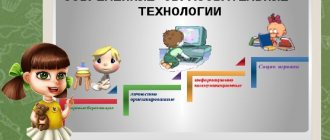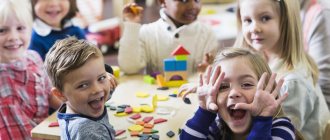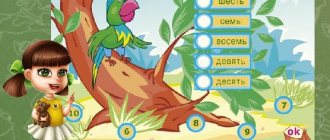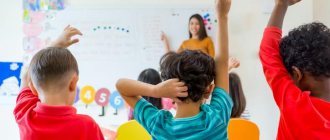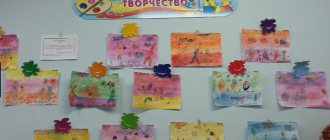What is teacher self-education
A constant, focused and organized process of improving and practical application of the theoretical aspects of modern methods of working with children is called self-education. Of course, a general interest in pedagogical innovations is an important element of self-education, but much more significant and relevant are the teacher’s searches for answers to questions that arise from time to time regarding working with specific children. It is this factor, according to the Federal State Educational Standard (FSES), that turns out to be fundamental when choosing a topic for self-education.
This is interesting. Developing a problem for self-education is an obligatory element of the pedagogical activity of an educator. And not only educators, but also specialized specialists working with children: speech therapist, choreographer, physical education instructor, music teacher, as well as senior educator and methodologist. In addition, the results and process of self-study are an integral part of the documentation necessary for the participation of a teacher in competitions of pedagogical excellence.
Searching for something new and interesting in a methodology is an essential element of a teacher’s professional growth.
Goals and objectives of self-education work
The mission of professional self-improvement of a teacher is universal, regardless of the age of the children with whom he works. Only specific aspects of the target components will differ:
- mastering the experience of colleagues and modern pedagogical technologies (in the context of the preparatory group, special attention should be paid, for example, to project methods, the form of work on which prepares future schoolchildren for the types of activities practiced at this level of education),
- systematization of the considered theoretical and practical experience in order to optimize it for the conditions of work with specific children (for example, when considering the experience of combining techniques for interacting with hyperactive children, a teacher who has only one such child in the group does not use the entire methodological system, but takes 1–2 element, for example, gives the child the position of leader in outdoor games),
- providing conditions for the harmonious mental, physical, emotional and mental development of each child.
Systematic work on solving such self-education problems as:
- monitoring of literature with innovative approaches to methodology and periodic return to past developments,
- moderate but systematic introduction of elements of various pedagogical technological innovations into personal practice (you should not introduce all the techniques you like into working with a group at once, even if they fit into the theme; innovations should be a “dessert” and not a “main course”, otherwise children will the state of affairs will quickly get boring),
- generalization and dissemination of one’s own pedagogical experience among colleagues, based on a creative understanding of the practice of psychologists, teachers and methodologists (in other words, there is no need to rewrite even successful lesson notes from publication to publication, but it is necessary to share one’s own pedagogical developments),
- a clear example of constant personal improvement (new techniques in work attract not only children, but also their parents, and given the “contagiousness” of such innovations, mothers and fathers also begin to be interested in different forms of interaction with children).
Self-education makes it possible to find the most effective ways to interact with children
Principles of organizing self-study work
Self-study is effective only if the work is based on the following principles:
- continuity of coverage of the chosen topic (depending on the topic, the work can cover one academic year, or maybe 2-4, that is, it is developed throughout the entire period of work with children - from the second junior group to preparatory),
- continuity of topics (the next topic should somehow be in contact with the previous one, while meeting the goals and objectives of the educational process in the preschool educational institution),
- accessibility to the practical implementation of the theory (when, for example, a teacher considers a topic related to computer technology in the classroom, you should not immediately introduce elements of children’s independent activities on the interactive board, especially if the children are in the computer science classroom for the first time),
- the relationship between professional and universal culture (this requirement concerns mainly the evaluative characteristics of religious and family values - this is a deeply intimate area of human relationships).
Forms of self-education activities
Activities related to professional and personal growth are carried out in two forms:
- individual, that is, the teacher attends classes taught by colleagues, takes part in pedagogical and methodological councils and develops a particular topic independently,
- group, when several teachers summarize the experience of their colleagues and, on this basis, create, for example, an original educational program.
Collective work involves sharing experience in studying the topic and drawing up narrowly focused educational programs on this basis
